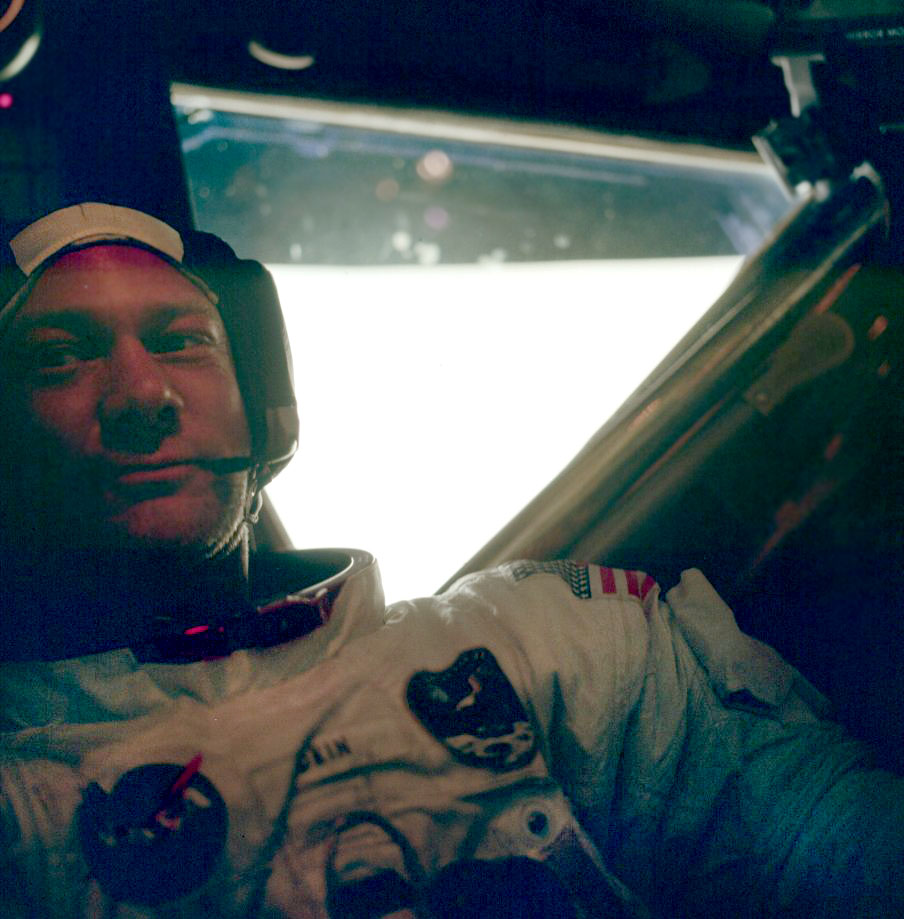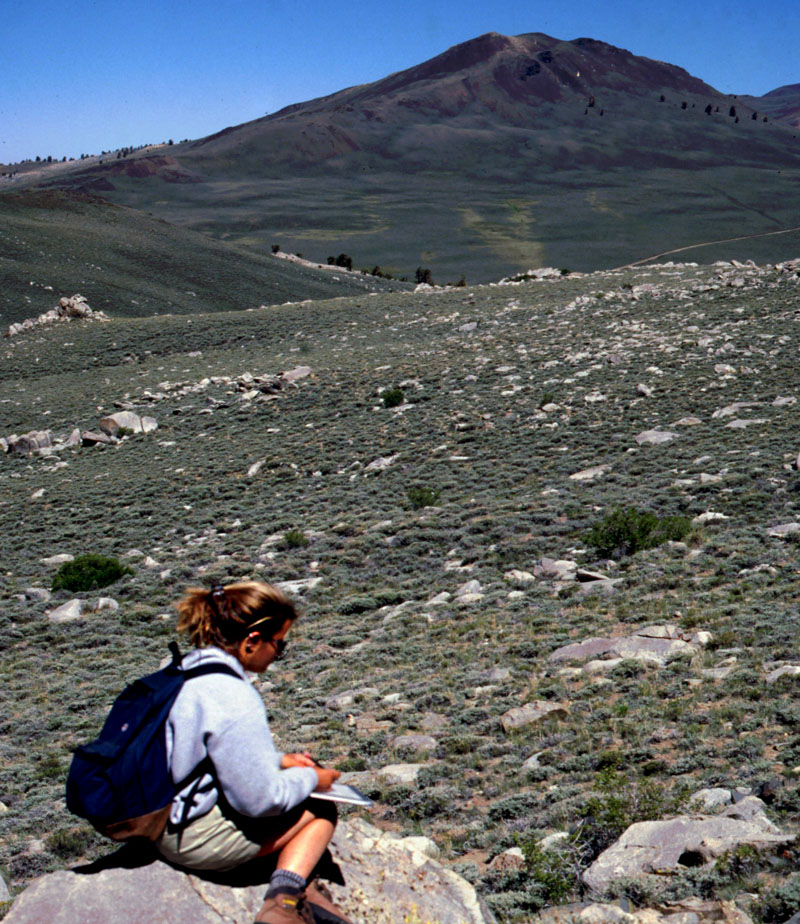Buzz Aldrin paused and looked out over the audience.

It was July 25, 2009, just five days after the fortieth anniversary of the Apollo 11 lunar landing. On that day four decades earlier, Buzz Aldrin and Neil Armstrong became, with one small thud on the lunar surface, the first humans ever to land on something that wasn’t Earth.
Aldrin stood now with a military bearing, a gold astronaut’s lapel pin proudly adorning his crisp, navy-blue blazer. Before him thousands of people assembled in a hot, standing-room-only crush below decks on the USS Hornet, the same aircraft carrier which plucked Aldrin and his fellow astronauts from the Pacific after their splashdown, so many years ago. While NASA had sent Aldrin and his colleagues to the moon using slide rules, today Aldrin faced a forest of iPhones recording his every word.
A member of the crowd asked Aldrin what he thought the true value of the Apollo missions had been for America.
“Inspiration,” Aldrin answered simply.
The vital ingredient now missing from science education, Aldrin went on, was inspiration. During the Cold War and the Apollo missions, students inspired to study science could see its importance to the bold mission outlined by JFK. One could reasonably dream of doing well in school, then working for NASA, perhaps building spaceships from scratch. Indeed, many of the Apollo mission flight controllers were men in their early twenties; the legendary flight controller John Aaron was only 26 when he saved the Apollo 12 mission after it was struck by lightning.
But the young student today who dreams of working for NASA or becoming an astronaut faces a very different reality. In our era of reduced expectations, starvation-level budgets, and a diminishing respect for learning itself, science education has been judged an expendable luxury—so expendable, that the era’s major education reform, No Child Left Behind, initially did not even involve science education. This was odd, because science integrates so many critical skills—quantitative reasoning, reading comprehension, clear writing, effective presentations—that one could argue that science should be the cornerstone of any education reform.
We can hardly blame students if they find the way science education is taught today, or the disappointing prospects of finding a job in science after graduation, less than inspirational.
And here’s where Neil deGrasse Tyson’s Cosmos accomplished something major. In its 13 episode tour-de-force of our universe—from the smallest subatomic particle, to the grandest movements of galaxies, from the opaque mysteries of dark matter and dark energy, to the crystal-clear consensus about evolution and climate change—Cosmos presented science not as a list of facts to be memorized, but as something to inspire human minds.
Cosmos blended fact-rich narration with explanatory visuals in such a way as to make science come alive. Too often “science” programs on TV have vanishingly little science content. Not Cosmos. Some television science programs have great visuals—think, Blue Planet or Planet Earth—but don’t offer much explanation to enhance what one sees. Not Cosmos. Audiences watching it were both well-informed and hungry to know more about the topics covered. Cosmos kindled curiosity, which is the best result to obtain from a science program; as Plutarch envisioned, a mind is not a vessel to be filled, but a fire to be lighted.
Make no mistake—studying science is a hard road for students. Those who choose this difficult path need renewed inspiration to make so many sacrifices. Most people want to jump right away into what interests them, but in science you can’t just do that. Carl Sagan noted this problem:
Imagine you seriously want to understand what quantum mechanics is about…you must learn arithmetic, Euclidian geometry, high school algebra, differential and integral calculus, ordinary and partial differential equations, vector calculus…roughly 15 years. Such a course of study does not actually involve learning any quantum mechanics, but merely establishing the mathematical framework required to approach it deeply.

In my field, geology, I sometimes have break the news to prospective students who want to put on their boots and start doing geology immediately, that before one can really get into the red meat, before one can even apply for the major, you’ve got to take calculus, chemistry, and physics. And after that, there’s a slog of mineralogy and petrology courses, countless weekends spent with your eyes glued to petrographic microscopes. Much of this will seem unrelated to the earned joy of swinging a rock hammer at an outcrop. But if you’re inspired, and you slog through the preparation, you can eventually find yourself scrambling out of a truck with a hand lens, a hammer, and a ham sandwich. (That’s usually the moment when the rain begins pouring, but that’s another story.)
Not everyone is willing to delay gratification so long. But one thing that can keep students going is inspiration, which acts like a triple-espresso for the mind.
You can’t put inspiration in a textbook. You certainly can’t find it on a multiple-choice test. You’re unlikely to find inspiration in an online class, clicking on a keyboard with peers you never meet. What you need is a teacher, someone who can transport you out of your seat and into the subject in a way that makes you forget everything else, crossing time and space to imagine long-vanished worlds that were, worlds that could be, while coming to see your own world with sharper eyes.
That’s the spark of inspiration science education needs. And that’s what Cosmos did so well. Neil deGrasse Tyson’s skills as an educator and communicator may have a long legacy among young viewers inspired to become science educators themselves, or to work to solve our myriad environmental problems. And perhaps someday, a young person inspired by watching Cosmos will gaze out of a portal not on the surface of the moon, but on the surface of another planet.
